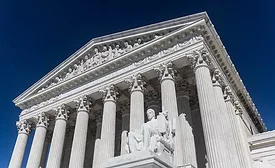Home » Keywords: » privacy issues
Items Tagged with 'privacy issues'
ARTICLES
Enterprise Services
Investigations and privacy issues during the pandemic
A look at challenges, best practices and the impact of COVID-19 on investigations.
December 3, 2021
Sign-up to receive top management & result-driven techniques in the industry.
Join over 20,000+ industry leaders who receive our premium content.
SIGN UP TODAY!Copyright ©2026. All Rights Reserved BNP Media.
Design, CMS, Hosting & Web Development :: ePublishing













